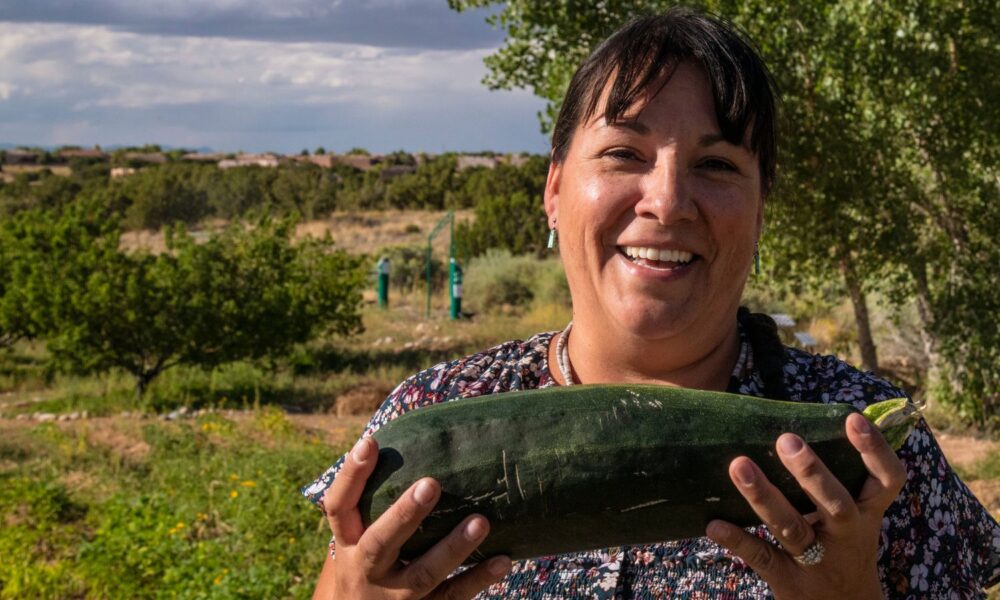One of the many functions of the United States Department of Agriculture (USDA) is to advance cross-cutting, innovative research in, well, agriculture. With a budget of $4.1 billion for research (which sounded like a lot until I realized it was mere 2% of the overall USDA budget of $198 billion), the USDA funds scientific work within its own agencies, as well as through grants to other organizations. The National Institute for Food and Agriculture (NIFA) oversees nearly half of the total research budget, or $1.96 billion, to advance this mission through non-competitive and competitive grants for research, training (or extension), and education.
Recently, NIFA asked the public about the greatest challenges in agriculture, and how it could better address these challenges with its programs. My team at the Union of Concerned Scientists took the opportunity to highlight some of the important challenges we’ve identified over the course of the last decade—including climate change, soil health, the prevalence of unsustainable and nutritionally poor foods, and inequity and injustice in food systems—and provided input about the types of approaches that can address these challenges.
Without further ado, here are our three recommendations!
Support climate change adaptation and mitigation research
The escalating effects of climate change on agriculture, including wildfires, floods, and droughts, are already affecting agricultural production. New research is urgently needed to advance and optimize science-based approaches to agriculture and forestry that effectively and equitably contribute to long-term climate change mitigation and adaptation. Research projects that include agroecology, measurement and modeling of soil carbon storage, climate change mitigation, ecosystem services, soil health, and impacts of policy on food system resilience need to be expanded and supported.
We want to particularly highlight the need for agroecological practices as a growing body of underfunded work despite widespread expert support. Agroecology offers significant opportunities to holistically address numerous agricultural challenges—including climate change, soil degradation and erosion, water and air pollution, and biodiversity loss—while supporting human health, racial equity, and food justice.
Invest in sustainable nutrition science, for environmental and human health
The main agricultural products in the United States are commodity crops including wheat, soy, and corn, coupled with animal products such as dairy and meat. Most of the food that we eat is not fresh from the farm, but rather processed and packaged for convenience. A food system based on these nutritionally poor and unsustainably produced foods is linked to many negative consequences (or as economists call them, externalities) including food-related illnesses such as cardiovascular disease and diabetes, and environmental issues such as climate change and pollution. These issues are not a result of individual consumer choice, but rather our food systems that overproduce these types of foods.
Sustainable nutrition science is a novel approach to integrate research at the intersection of farming and food production, climate and the environment, and nutrition, with a focus on equitable health outcomes. Sustainable nutrition science applies systems thinking to simultaneously address the most pressing threats to agriculture and public health. Despite widespread support for sustainable nutrition science, we have documented the continued absence of dedicated federal funding necessary to further advance this important field. UCS analysis estimated that between FY 2016 and FY 2019, just $15.7 million was awarded to sustainable nutrition science projects each year, amounting to less than 25 cents out of every thousand dollars in federal research funding. Although we have seen a recent infusion of grants into these projects, we hope to see this trend continue.
Address inequality in food systems and in the grant-making process
Structural racism and injustice in the United States and within USDA have resulted in the exclusion of farmers who are Black, Indigenous, and people of color (BIPOC) from accessing adequate USDA resources, the abuse of food chain workers, and lack of nutritious food access in BIPOC communities (including for many food workers themselves). Equity and racial justice need to be centered in all research priorities. NIFA should prioritize research that can help transform our food system into one that is equitable for all people; produces affordable, accessible, nutritious, and sustainable food for all; protects the health and well-being of food and farmworkers; and increases access to land and resources for BIPOC and underserved farmers.
At the same time, land-grant institutions have received the lion’s share of research dollars while being held insufficiently accountable to their public mission. To promote more equity within agriculture research, NIFA should continue to include and engage directly with institutions led by, and serving, BIPOC farmers, farmworkers, women, and frontline communities. Moreover, NIFA can advance racial equity by allocating grant awards in ways that facilitate BIPOC leadership in agricultural science and food systems research. Additional resources should be directed to the 1890 land-grant institutions (Historically Black Colleges and Universities), the 1994 land-grant institutions (the Tribal Colleges and Universities), and the Hispanic-Serving Agricultural Colleges and Universities to ensure they have the same services and support as the 1862 land-grant institutions.
Let’s expand these priorities in the Farm Bill, too
Agroecology, sustainable nutrition science, and equity are the three priorities we have advocated for with NIFA—and you can watch my brilliant colleague, Dr. Omanjana Goswami, deliver our comments on these priorities at the recent NIFA listening session (starting at the 1 hour 46 minute mark).
But these priorities shouldn’t just remain research priorities. They should actively inform the Farm Bill process in 2023 as well. Only a Farm Bill that explicitly seeks to combat climate change, holistically connect environmental issues to nutrition concerns, and correct the inequity and injustice that has permeated US food systems over the past several hundred years, can guarantee good food and well-being for all.

